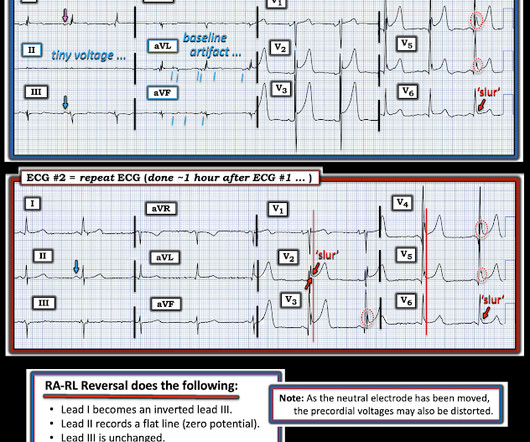An elderly male with acute altered mental status and huge ST Elevation
Dr. Smith's ECG Blog
OCTOBER 12, 2024
CTA head and neck were obtained and showed no evidence of intracranial hemorrhage, large vessel occlusion stroke (what a helpful and apt name for an acute arterial occlusion paradigm, by the way.), EKG on arrival to the ED is shown below: What do you think? 2) There was no terminal QRS distortion on these ECGs. Any changes?

















Let's personalize your content